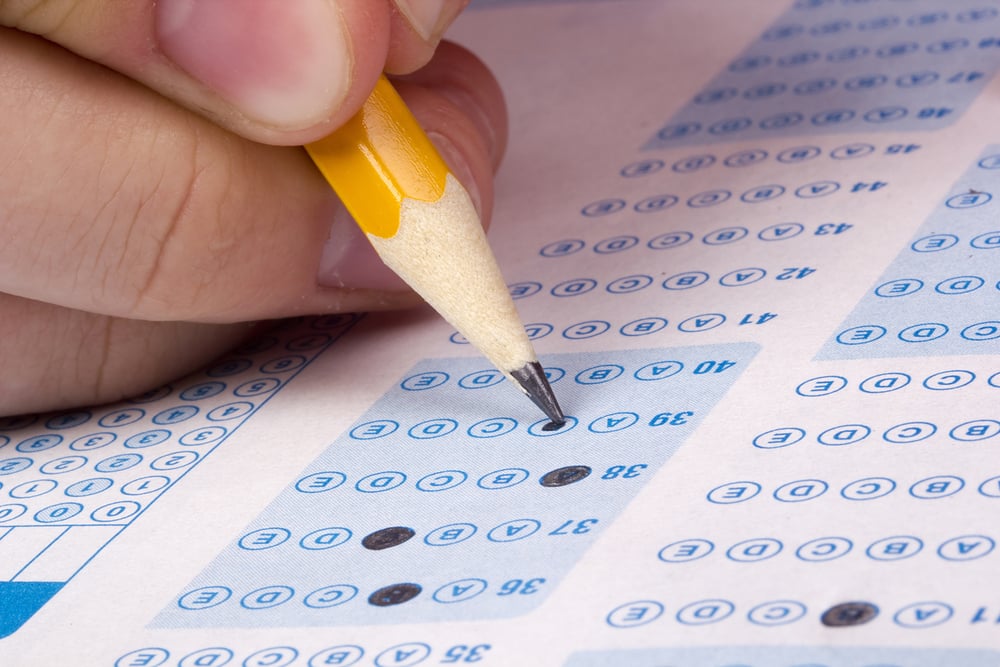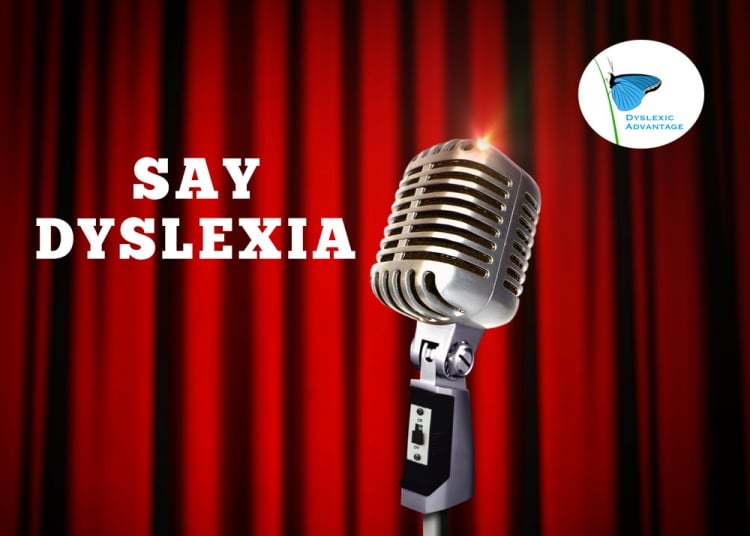There are many skills that are required to write by hand. Besides having an idea and being able to organize it into words, there’s remembering the motor, kinesthetic, and visual sequences of letters and words and being able to discern similar and dissimilar sounds (auditory processing, phonemic awareness). No wonder it’s hard to write! What do you see in the following writing? Mix of capitals and lower case letters, irregular spacing, sight word error (plaid instead of played), phonemic error (chr instead of tr), elision / dropped sound or attention / working memory mistake (chis instead of chips). This student would benefit from working with an alphabet strip of lower and upper case letters in view as well as a spelling or writing […]
DROPPING OUT BECAUSE OF FOREIGN LANGUAGE [Premium]
At Harvard University in the 1970s, a clinical psychologist made a startling discovery. Intending to study the emotional problems that caused students at one of the world’s elite universities to drop out of school to drop out, he found out instead that the most common reason students dropped out of their degree programs was that they were unable to satisfy Harvard’s foreign language requirement. “Dinklage described three groups of students who were otherwise, bright, gifted, and highly motivated, but who remained unsuccessful in the foreign language classroom. He reported that these students were not helped by merely improving study habits or by adjusting to postsecondary demands.” The 1st group of students demonstrated problems in written language that were most apparent in “the student’s reading […]
Q: What Help is Available for Adults with Dyslexia ?
A. Depending on what kind of help you are seeking and where you live, there are many different types of resources available to help adults with dyslexia. In the United States, it's been estimated that 3 out of 4 children are not being identified in school; among...
WHEN A UNIVERSITY IS DYSLEXIA-UNFRIENDLY [Premium]
Despite recent advances in dyslexia-friendly policies and statements in K-12 and higher education, reports of dyslexia-unfriendly and discriminatory practices are more common than anyone would like to mention. At the university level, rarely is there any education for faculty and staff about the needs of dyslexic and LD students on campus, so it should not be surprising that many professors will not understand why accommodations are necessary for dyslexic students. They may actively discourage students from obtaining such accommodations although it is against federal law. As we have recently reported, US Department of Justice regulations requires that private colleges give “Considerable weight to the documentation of past accommodations, modifications, or auxiliary aids or services received in similar situations” and not require additional burdensome re-testing. […]
Improved College Board Guidelines for Test Accommodations
New from the College Board: "Beginning January 1, 2017, the vast majority of students who are approved for and using testing accommodations at their school through a current Individualized Education Program (IEP) or 504 Plan will have those same accommodations...
Dyslexia and Medical School – AMA Journal of Ethics [Premium]
In an important article published in the AMA Journal of Ethics, physicians call for mandatory dyslexia training for medical school faculty. The article presents the case of a 1st year dyslexic medical student who excelled in college and in clinical research, but who is conflicted about whether to disclose his dyslexia to faculty and fellow classmates because of his concerns that it would negatively impact his “education, performance, and reputation.” The writers comment: “Given the scientific progress in understanding the epidemiology, cognitive basis, and neurobiology of dyslexia, it is surprising that ignorance of the condition persists; such ignorance continues to result in faculty misperceptions of dyslexia. For example, the very common and physiologically based symptom of slow reading in dyslexia can be misinterpreted as slow […]
Surviving Parent Teacher Conferences [Premium]
Parent-Teaching Conferences can be stressful for both parents and teachers. Keep your eye on the big picture, think strategically, and work toward a positive year for your student in the classroom. Often the amount of time you have with the teacher is quite short because of the total number of students involved. As a result, plan on showing up to see how the beginning of the year is progressing and focus on finding solutions if your students is lagging behind or having difficulties. If you’ve purchase Dyslexia, Dysgraphia, or Dyscalculia Teacher cards, now is a good time to use them. Quick Tips for Parent Teacher Conferences If Your Student is Dyslexic: Make a Positive First Impression – This may be the first time your meeting this teacher and she […]
Q: How Can My Student Be Tested for Dyscalculia ? [Premium}
The last decade has seen a great advance in the biological understanding of dyscalculia, or math disability. The DSM V groups a specific learning disorder in math (315.1) under Specific Learning Disability along with impairment in reading (315.000) and impairment in written expression (315.2). The NIH defines dyscalculia as a condition contributes to “difficulty understanding arithmetic concepts and doing such tasks as addition, multiplication, and measuring.” It is important to identify dyscalculia, because an unrecognized LD can contribute to cycles of academic underachievement, secondary behavioral and emotional issues, and obstacles to further academic or workplace advancement. With the recent addition of high-stakes exams like the calculator-free section of the new SAT, it is even more critical that students with dyscalculia be identified. The DSM V definition includes the […]
Question: Does Note-Taking with Spellcheck Help or Hinder Students with Dyslexia ? [Premium]
It’s a question that arises commonly – does spellchecking for students help or hinder when it comes to students and spelling? The concern is that allowing students to use spellcheck on a regular basis in the long run may prevent them learning correct spellings. Should age matter or the presence of dyslexia? What about working memory overload or ADD/ ADHD? The issue is not a trivial one especially because of recent efforts to The issue is not a trivial one especially because of recent efforts to put laptops away in college during lectures based on computer-based vs. traditional note-taking by hand (N.B. this study did not specifically assess dyslexic students – see the NPR story also below). A recent paper by Hiscox and colleagues (see below) […]
[Premium] Sorting Out the Differences Between Dyslexia and ADD / ADHD
On one level, Dyslexia and ADD / ADHD would seem quite different, but in reality, we are only at the beginning of our understanding of how the two might overlap and be different. Both Dyslexia and ADD / ADHD were initially characterized by their negatives – Dyslexia by difficulty learning to read, and ADD / ADHD by difficulty paying attention. Today we know that for both, positive qualities like higher levels of creativity and ability can be associated as well as negatives, and researchers are only now beginning to take a more careful look at what these two designations imply. For those who don’t know, as a group, children with ADD / ADHD score lower on many tests of phonology and reading comprehension, theoretically because of their […]
[Premium] What to Do If a Reading Curriculum Doesn’t Work
It happens to everybody. You research a curriculum thoroughly or it gets through several levels of a review and then you put it into action and… it just doesn’t connect. What do you do? There are several common reasons why a curriculum doesn’t connect with a particular student – and so some trial and error and modification need to take place. The most common reasons that certain curricula fail for a particular student include: 1. Going Too Fast Because there can be difficulty registering information accurately (sounds, letters, words), a student may need to slow the pace down considerably if the lessons aren’t sinking in. It may seem counterintuitive if you feel a student is slipping farther behind, but reducing work and simplifying […]
Why It’s Important to Say Dyslexia But Also Support Its Strengths
What is Dyslexia? Dyslexia is a brain-based learning difference with a strong genetic basis. It characterized by unexpected difficulties in fluent reading and specific patterns of difficulty with writing, spelling, and sometimes math as well as strengths in...

![WHAT YOU CAN LEARN FROM A CHILD’S WRITING [Premium]](https://www.dyslexicadvantage.org/wp-content/uploads/2017/02/Screen-Shot-2019-09-03-at-2.11.37-PM.jpg)
![DROPPING OUT BECAUSE OF FOREIGN LANGUAGE [Premium]](https://www.dyslexicadvantage.org/wp-content/uploads/2017/02/r1-18.png)

![WHEN A UNIVERSITY IS DYSLEXIA-UNFRIENDLY [Premium]](https://www.dyslexicadvantage.org/wp-content/uploads/2017/01/element5-digital-jCIMcOpFHig-unsplash-scaled.jpg)

![Dyslexia and Medical School – AMA Journal of Ethics [Premium]](https://www.dyslexicadvantage.org/wp-content/uploads/2016/11/Screen-Shot-2019-09-03-at-3.44.07-PM.jpg)
![Surviving Parent Teacher Conferences [Premium]](https://www.dyslexicadvantage.org/wp-content/uploads/2016/10/parent-teacher-conferences.jpg)

![Question: Does Note-Taking with Spellcheck Help or Hinder Students with Dyslexia ? [Premium]](https://www.dyslexicadvantage.org/wp-content/uploads/2016/10/Screen-Shot-2019-09-09-at-10.45.17-AM.jpg)
![[Premium] Sorting Out the Differences Between Dyslexia and ADD / ADHD](https://www.dyslexicadvantage.org/wp-content/uploads/2016/09/dyslexia-adhd.jpg)
![[Premium] What to Do If a Reading Curriculum Doesn’t Work](https://www.dyslexicadvantage.org/wp-content/uploads/2016/09/our-shutterstock-puzzle.jpg)














